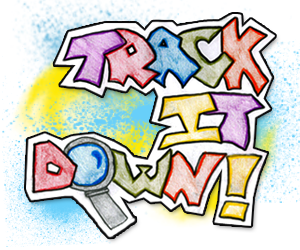Information » People in Your Life » Being a Parent » Children 12 years and over
In This Section
Children 12 years and over
When your child is 11 or 12, they will start secondary school. This can be a nerve-wracking time for both the parents and the children.
Most children will feel quite apprehensive about the change, the work load and making new friends but having some reassurance and support from their parents can help, so be there to listen to any concerns they may have.
They will go through many personal and social changes over the next few years, forming their identity and going through puberty.
Try to maintain good communication with them so that they will feel able to talk to you about any problems they might be having.
The start of secondary school also signals the start of examinations, including:
- Key Stage 3 exams in English, Welsh (as first language), maths and science (11-14 year olds)
- End of Key Stage 3 exams - SATS (14 years old)
- End of Key Stage 4 exams i.e. GCSEs, N.V.Q.s or G.N.V.Q.s (16 year olds)
At the key of each exam period, you´ll be told what level your child is working at and can discuss the next steps in their education with them and their teachers.
Take an interest in your child´s education as much as you can and be available to help with homework, coursework or revision if they want you to.
Puberty
Puberty can begin at any age from eight to 16, but it is usually between the ages of nine and 13. See the PUBERTY section for information on the changes during puberty.
- It is important that your child understands the changes they are going through and that they are completely normal, so try and talk to your child at as early an age as possible to avoid any confusion
- As well as physical changes, your child might change their behaviour too. Many teenagers become moody and irritable during puberty and this is normal
- Many young people find puberty a confusing and emotional time and want to talk to someone about it, so make sure they know you are there for them if they need to chat about things
- Being the parent of a teenager can be difficult. Sometimes you might have to cope with plenty of hormones, mood swings and arguments, but it is just a phase that will pass. If you are finding it hard, try talking to other parents for advice or use the links below for support
Bullying
Growing up can be a difficult time and some children might experience bullying as their body changes or they move into a new school, for example.
Bullying can range from name calling and threats to physical abuse. Some children are too embarrassed or frightened to talk to their parents or teachers about bullying so look out for the warning signs that your child might be being bullied, including:
- They are reluctant to go to school or gets upset at the thought
- They fake illness to avoid school
- Their behaviour changes, such as becoming quiet, becoming insecure or angry
- They have unexplained cuts and bruises
If you are worried, try talking to your child and create an environment where they can easily talk to you when they need to.
- If your child does confide in you, reassure them it is not their fault and discuss ways that you might be able to help them to handle the situation and stop it. Make an appointment at the school to discuss the problem with their teacher if the bullying is happening at school
- If the bullying is happening outside of school, try talking to the other child /children’s parents directly to find a way to resolve the issue
- Above all, make your child feel safe by letting them know you are there for them and by always consulting them on how to tackle the problem before taking action
Sweet 16
It may seem daunting but, at 16 years old, your child can legally engage in sexual intercourse, get married with your consent and leave home.
- At 16, your teenager will feel more independent and will probably spend increasing amounts of time away from home
- You might be concerned about them but respect their privacy. Take an interest in their lives but don’t pry
- Friendships and what people think of them are very important to a teenager and this peer pressure can sometimes result in your teen starting sexual relationships and even drinking and taking drugs
- Look out for unusual or out-of-character behaviour linked to substance abuse
- If you are at all worried, talk to them and explain your concerns
- Trying to strike a balance between protecting your child and allowing them some freedom can be difficult. The key to a happy and healthy relationship with your teen is communication so keep the channels open








